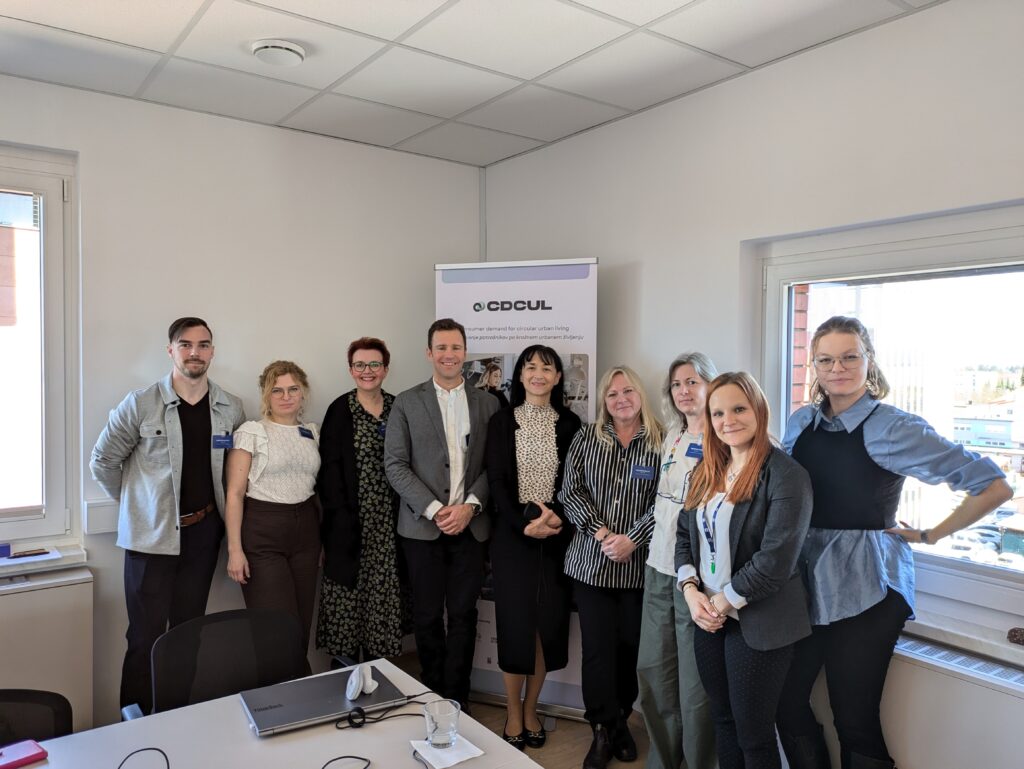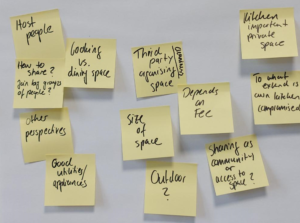Earlier this week, our CDCUL project team gathered in the beautiful city of Ljubljana, Slovenia, for a our third in-person consortium meeting. As we reach the project’s halfway point, this three-day meeting at the ZAG Slovenian National Institute of Building and Civil Engineering coincided with an important data collection milestone in our journey toward understanding how sharing economy principles can be integrated into housing solutions.
What Have We Learned So Far?
Our discrete choice experiment, which surveyed over 3,000 people across Sweden, Slovenia, and the Netherlands, is beginning to yielded some fascinating insights. (For a detailed description of our survey and the process of developing the survey, click here.)
Some early findings (these are preliminary findings and should not be reported as finalized project results or peer-reviewed).
· Previous sharing experience is a reliable correlate of future sharing intent
· Slovenes report the most experience and interest in shared access spaces, while Dutch respondents were less interested, and Swedes fell in between
· Younger people are generally more interested in shared-access spaces
· Having children in the household significantly increases interest in shared access spaces and services
· Environmental consciousness strongly correlates with sharing interest
· Willingness to pay for shared-access spaces and services varies across different countries, services, and attributes, but “bookability” seems to be a rather consistent attribute that stimulates willingness to pay.
Perhaps most surprisingly, housing characteristics like apartment living or home size showed little correlation with sharing interest, challenging some of our initial assumptions.
Focus Groups: Digging Deeper
With these quantitative findings in hand, we’re now planning focus groups across Slovenia and Sweden to better understand the “why” behind these numbers. What makes older adults less interested in sharing? How do families envision using shared spaces? What barriers prevent interested consumers from participating in sharing services?
Through creative engagement methods and visual materials, we hope to explore critical questions around social dynamics, management preferences, and spatial considerations. Would you prefer sharing with neighbors you know, or does anonymity appeal more? Does professional management matter more for workshops than kitchens? These nuances will help architects and developers design spaces that truly meet consumer needs.
From Research to Reality
The collaboration between researchers, architects, and housing developers makes this project particularly powerful. As our architectural partners from Krook & Tjäder work to translate research insights into practical design solutions, we’re creating a vital bridge between consumer preferences and built environments.
Whether designing new developments or retrofitting existing buildings, our findings will help create sharing services that residents will actually use—boosting both sustainability outcomes and quality of life.
What’s Next?
As we head into the second half of the project, focus group planning is in full swing. By autumn, we’ll be conducting sessions with diverse participant groups, followed by in-depth analysis. Next spring will bring a digital conference sharing our results.
Stay tuned to our website and LinkedIn (#CDCUL) for regular updates, or reach out if you’re interested in learning more about how sharing economy principles might transform urban living. Together, we’re building a future where sustainability and community come built-in!



